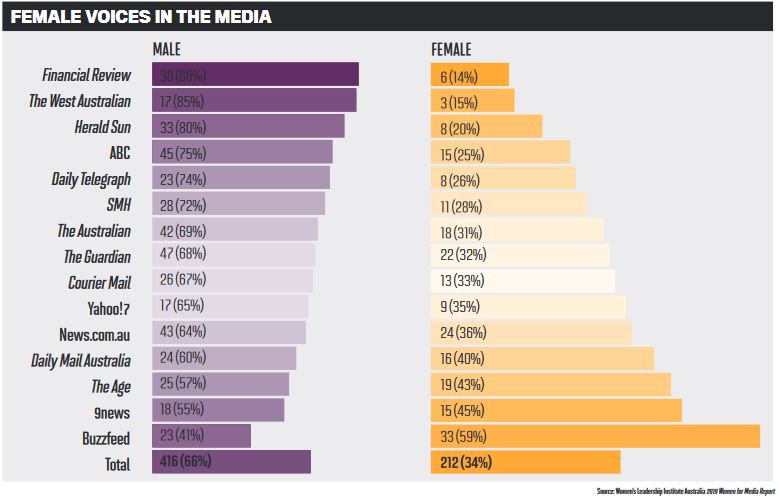This year's ANZ Doyenne program may be taking place virtually, but it is continuing its incredible work of elevating the voices of women in broking. The bank's GM retail broker explains the ripple effect of change this is creating

For women in broking, seeing the work other women do in the industry and hearing their perspectives is an important driver of greater gender diversity. That is why ANZ’s Doyenne program aims to elevate women’s voices and build professional visibility in the mortgage broking industry.
Now in its third year, the program offers women the tools, courage and self-belief to recognise the value of their own voices in the media. After the 2019 Women for Media Report showed that men accounted for 66% of all direct sources quoted – and 86% of those quoted by certain outlets – ANZ sought to close that gap.
In a COVID-19 world, this remains an important matter, and the program is focusing this year on leading and visibility during difficult times – albeit in a virtual format.
ANZ’s GM retail broker, Simone Tilley, who designed the program, says the feedback shows it has helped participants give themselves “permission” to speak up, be heard and confidently step forward into the spotlight.
Tilley has seen more journalists proactively engaging with Doyenne women more regularly to seek their opinions and thought leadership.
“If I reflect on the female presence in the third party industry media when I first started in this role, compared to what it is today, it has fundamentally changed,” she says. “I’m incredibly proud of the small contribution we have made in instigating and driving a change in mindset and a ripple effect from that.”
“If I reflect on the female presence in the ... industry media when I first started in this role, compared to what it is today, it has fundamentally changed” Simone Tilley, ANZ
The more that female voices are elevated and the industry talks about the benefits of diversity, the more positive momentum Tilley believes will be generated to bring everyone on the journey.
It is not just female voices, however. She notes that “male champions of change” are genuine believers, praising their leadership styles as progressive and inclusive.
“[It is] worth reminding everyone that we are all leaders, whether that be in your homes, schools, offices, workplaces, sporting arenas,” Tilley says. “This is about being the best possible version of ourselves so we can lead effectively, drive richer discussion and debate, improve staff engagement and bring out the best in others.”
Reflecting the community
It goes beyond gender, too. ANZ’s purpose is to “shape a world where people and communities thrive”, Tilley says.
In order for this to happen, it is critical that the bank’s workforce mirrors the community it serves. This means welcoming and inviting difference, whether it be gender, style, skill, ethnicity, the LGBTQI+ community or culture, and therefore bringing in diversity of thinking.
“We all bring something different to the table,” Tilley says. “Irrespective of appearance, we all have differing views, beliefs, backgrounds, passions, expertise. We have also had differing experiences and journeys. Creating the culture of respectful enquiry and genuinely trying to understand someone else’s point of view before hurrying on to the next item on the agenda is a purposeful habit. It creates a healthy foundation for everyone to encourage and lean into constructive criticism and raise the strategic orientation and bench strength of the team.
“Welcoming and inviting a broad spectrum of thought can mitigate against unconscious bias and ultimately strengthen decision-making processes by creating a licence to challenge the status quo, foster a spirit of curiosity in a respectful way, and drive continuous learning,” Tilley says.
Creating that culture requires effective leadership, which sees leaders ‘walk the talk’, drive richer discussion and debate, improve staff engagement, and bring out the best in others.
“When diversity is supported genuinely throughout all layers of an extended team, culturally, it creates a platform for a trusted speak-up culture without fear or reprimand,” Tilley says. “People will feel comfortable about bringing their whole of self to work, feel comfortable about contributing, and feel accepted; they adopt a sense of pride about where they work, and this can also be linked to stronger motivation and loyalty.”
Moving forward
The Doyenne program will be more condensed this year and will be held virtually for existing participants. The line-up of speakers includes ANZ CEO Shayne Elliott and highly respected thought leaders from the business community.
As long as restrictions allow, Tilley is hoping for a more robust, face-to-face series with a new cohort of women in the new year. But in the meantime, it’s important to keep the topic on the table until difference “is truly visible”.
“I think if people continue to share stories bravely and explain how they have overcome their own fears and vulnerabilities, it will continue to inspire others who identify with their story to push themselves forward to set new personal goals,” she says.
“Everyone needs to ask themselves: Are your office jokes really ‘funny’? Have you got the right diversity around your own tables? How are you inviting constructive criticism to drive broader discussion on a range of key issues?
“How can you lift your own personal bars? Are these changes optical or are they real? As an industry, we are better together.”




